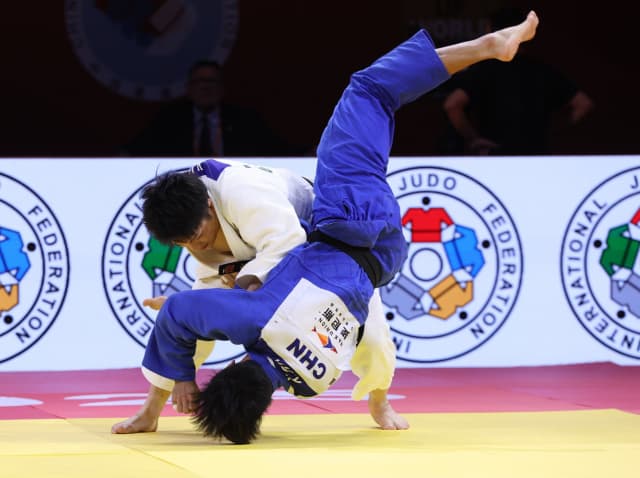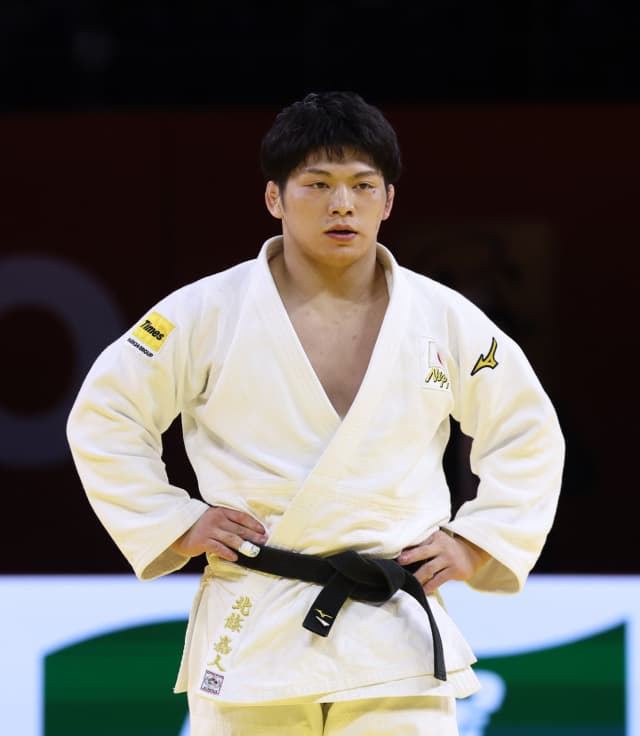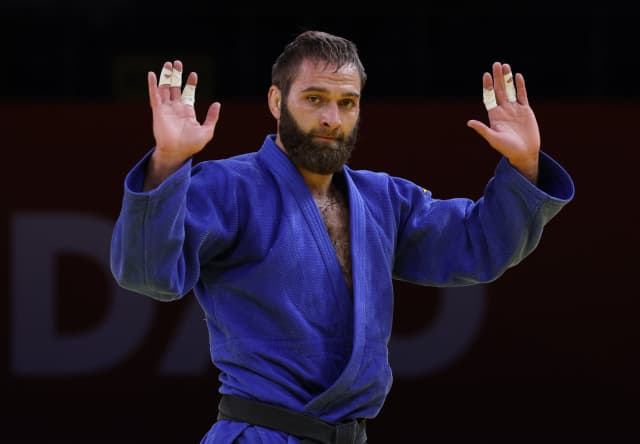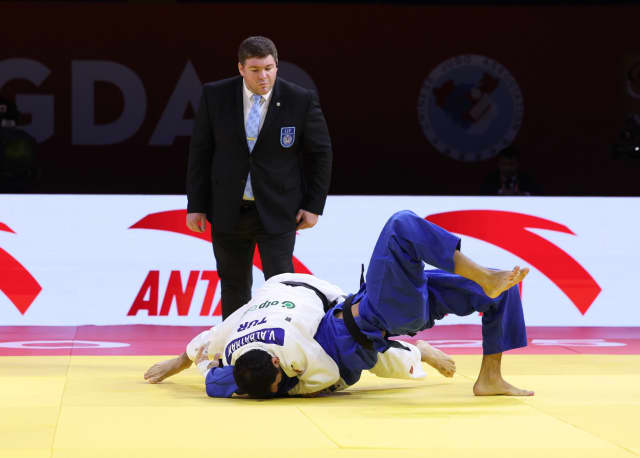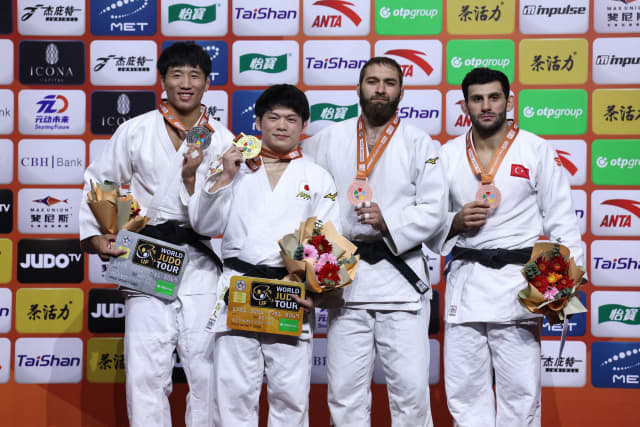Yoshito Hojo (JPN) and Xinglong Cha (CHN) fought against the odds to reach the final, neither among the highest ranked of the category. Hojo’s technical range and ability to throw no matter the rhythm or pace of a contest is becoming more and more well known. Cha was thrown with two de-ashi-harai attacks for yuko scores, an uchi-mata for waza-ari and finally seoi-otoshi to complete the task.
Xinglong Cha is clearly an able judoka with great potential, showing that the Chinese men’s team has been working hard in recent years, but Hojo was the champion at -81 kg in Qingdao.
Gadzhimurad Omarov (UAE) and Askerbii Gerbekov (BRN) stepped up on the trail for a bronze medal but only one of them would arrive. Omarov was first to score although it took until the last minute to do so. He found space for his hips and registered a yuko. Despite the time slipping away, Gerbekov showed no signs of conceding and when Omarov went for a poorly prepared o-uchi-gari, he was ready. He first tried to counter the failed attack but when that didn’t work, he jumped on Omarov’s arm, pulling it straight and forcing the UAE athlete to tap. It was quite a come-back, an impressively won medal.
One of the most prolific athletes of the category, Vedat Albayrak (TUR) faced a challenge from one of the least well known, 21-year Adilet Almat (KAZ). Albayrak is know as one of the strong men of the category and in the end, this was his weapon of choice. When he couldn’t throw the Kazakh fighter, he applied extreme pressure on the ground to free a trapped leg and earn the ‘osae-komi’ call from the referee. However, unbelievably, Almat escaped using an huge bridging action.
Not many ever escape from Albayrak’s grasp, but Almat couldn’t convert that excellence into a win as with only 18 seconds left on the clock, the Turkish judoka protected his score and the medal


